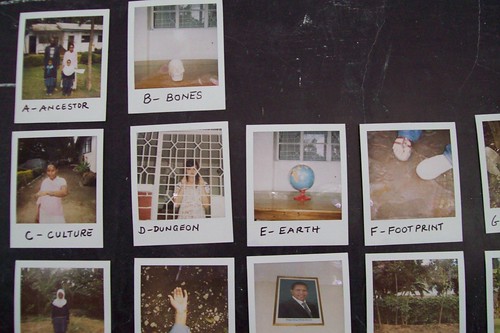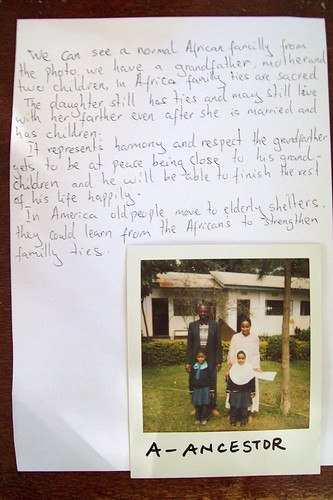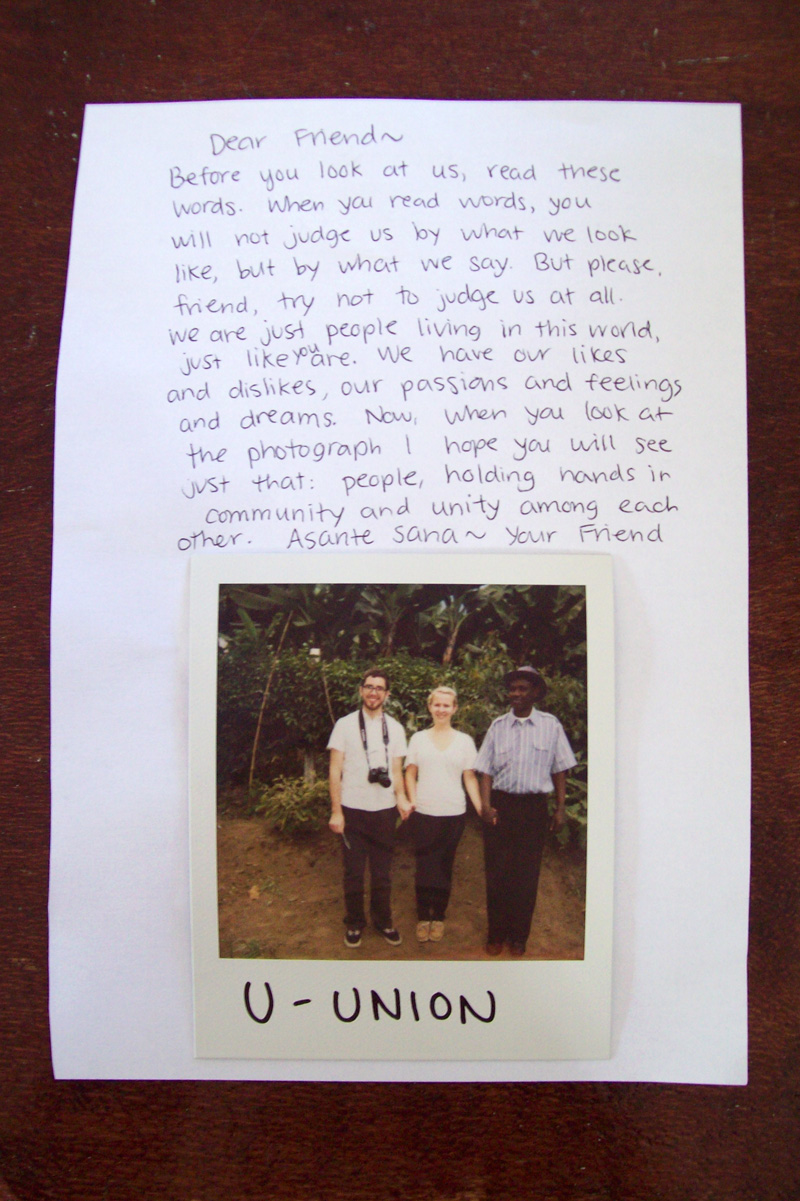
The entire alphabet looked like this:

The idea with this project is that it reinforces learning in many ways. Visual aids are much stronger than route memorization, and creating those visuals yourself solidifies memory and is a much more active approach to learning new things. For example, last year students here in Tanzania used this project to learn verbs for French class. Instead of writing down a list of verbs and their translations, they acted out each verb they were learning and took a photograph for each. Not only do you remember the word and its meaning, but the very act of creating the photograph makes the students (or anyone who creates the photo) more active in their learning and exploring, rather than sitting passively inside of a classroom.
After assembling the alphabet onto the chalkboard, everyone in the room (including me) chose one letter to write about: a memory, a definition, a story, anything to go along with the word, concept, photograph. When we were done, we read some aloud. As always, it was intriguing to hear what each person had to say. I was smiling.


LTP is about engaging in the world around you and exploring your own ways of seeing and thinking, rather than seeing and thinking the way that someone else wants you to. It's about embracing your thoughts and opinions and dreams and sharing them with others. And when we interact in such a way, the confines of dichotomies such as "teacher/student" "insider/outsider" are broken down and we can begin to see that not only is our own ways of thinking valid;

No comments:
Post a Comment